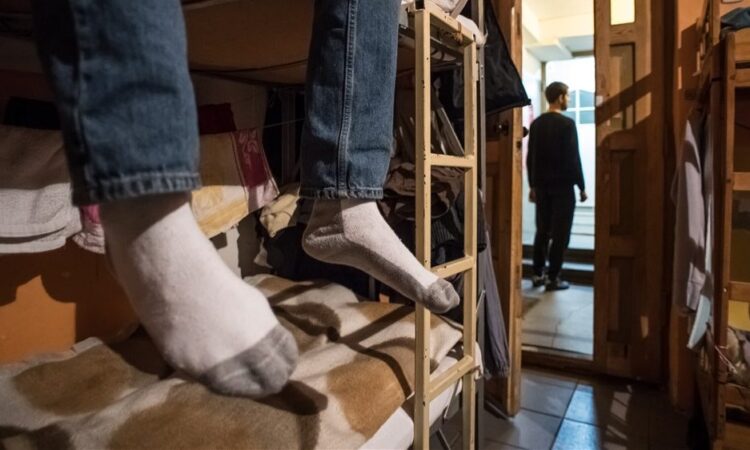
The poor middle class
Renting an apartment in a Polish city like Warsaw has become increasingly difficult. Not only have rents risen by as much as 50 per cent, but any new offer disappears from the market after only a day or two.
Experts explain a perfect storm has led to this situation. Like other countries in Central and Eastern Europe, Poland has been hit by inflation, which hit an annual 17.2 per cent in January. To counter it, the central bank has hiked interest rates, leading to a significant tightening of conditions for mortgages; with fewer people able to buy, there is increased competition for renting. Furthermore, around a million Ukrainian refugees continue to live in Poland, the vast majority of them using the regular rental market having been provided with no long-term alternatives by the Polish state.
Developers are still building – around 150,000 dwellings a year are constructed in Poland on average – but high construction costs are feeding into higher sale prices, which together with the stricter mortgage conditions make many of the new apartments unaffordable.
According to the Committee for the Defence of Tenants’ Rights, a Warsaw-based organisation, renting a one-room studio in the Polish capital now costs between 2,500-3,000 zloty (500-650 euros) a month, while a two-room basic flat can easily reach 3,500-4,000 zloty (650-850 euros).
According to Statistics Poland (GUS), the average monthly salary in Poland in 2022 was 4,800 zloty net (around 1,000 euros), meaning a large number of people are now forced to spend over two-thirds of their income on rent. Those with mortgages have seen significant increases in their monthly repayments, leading the government to consider introducing one-year “holidays” on payments.
But politicians are being pressured to do more. The Law and Justice (PiS) government has promised that, as of July, it will subsidise mortgages taken out by people buying their first home, giving a stable monthly interest rate of 2 per cent (plus additional bank costs) for the first 10 years of the loan.
In response, the leader of the main opposition Civic Platform party, Donald Tusk, promised in February that, if elected, his party would subsidise mortgages to give a zero per cent interest rate and also offer a 600 zloty subsidy towards rental payments.
“Both ends of the political spectrum promise to introduce instruments that support home ownership,” Piotr Lis, an expert on housing from the University of Lodz, tells BIRN.
“It seems the focus is on the middle class, because that’s what is more profitable when it comes to electoral gains,” Lis says. “In the meantime, we have not figured out at all how to solve the basic problems affecting the less privileged in society.”
Poles have generally tended to see home ownership as a life goal, possibly in response to decades under Communism when private property was outlawed. Surprisingly, Lis’s research shows that still holds true today amongst the Polish youth, even though it has become fiendishly expensive to buy property and trends elsewhere in Europe are shifting towards renting.
“80 per cent of the students we interviewed said they wanted to be home owners, while 40 per cent said they wanted it at all costs, seeing it as a failure in life if they didn’t,” Lis says. “I fear that if the state doesn’t explain to them what the risks are of this approach, they will make mistakes which will cost them three decades of indebtedness.”
Housing experts say both offers by PiS and the opposition will be swiftly taken up by those able to get a mortgage once the proposed measures are implemented, which would mostly be the better-off. Over time, the measures will spark another increase in property prices, making housing even less accessible to the lower middle class or the poor.






